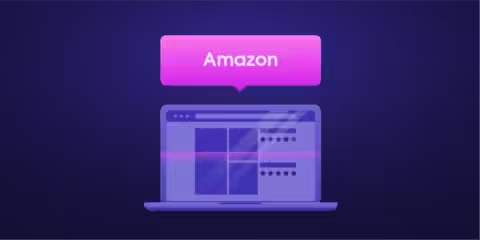Businesses are sundry, but retail business that matters most because it’s directly connected to the end consumers. Besides, every business’s main agenda is to impress clients and customers; B2B wants to sign lucrative deals, while B2C dreams about catching leads—and making them loyal customers. Our blog will give you a sneak peek of the best software that helps retail businesses crank up their services for the better.
Old-fashioned Retail Business Structure vs. the Present One: What’s the Difference?
A glance at the past: “Many retail companies and stores thrived back in the days as they had good customers, but their meeting and exchanging of resources happened in the interim—it was a short-lived affair. Yes, they had good relations but weren’t connected like we are today – credits to PC software and smartphone applications that made it all possible.”
Although there were factories with manufacturing facilities back in the day, they were confined to their spaces. Today, we have software that has changed the entire scenario, and the best part about them is they’re everywhere. This means businesses use them and their customers, too, especially when they need to buy a product or inquire about services. Speaking of such, we have brands marketing their quintessential mobile apps on social media using a unique monogram. They even use e-signature maker generators to add exquisiteness to their brand marks and attract potential customers.
These companies are generally retail businesses that usually sell products online, and yes, they do, too, use the help of software to achieve better results. Besides, no firm can survive without software in the digital age – hence, this blog. Below are the top 7 retail business software helping retail companies understand their customers’ needs and thus, reach the pinnacles of success:
1. Fabric Commerce
It’s one of the best retail business software that offers flexibility and quickly adapts to market trends. Not to mention, the seamless running of operations allows business owners to understand their complex jobs and thus increase productivity. Fabric Commerce targets large-scale retailers as its multiple modular framework speeds up business operational channels. The best part here is that retail companies can also leverage single units for carrying specific purposes.
Moreover, Fabric Commerce’s exclusive modular design helps companies simplify complex tasks while mitigating risks. Its API-first approach helps streamline and expedite response times, thus increasing customer engagement times. Overall, Fabric Commerce is built to carry complex jobs at scale and secure company operations and customers for the future.
2. BigCommerce
BigCommerce is a cloud-based SaaS platform built to simplify every process from customers’ purchasing to payment, irrespective of retail business niche and size. The crux of it is that it supports reciprocal business operations as companies can merge BigCommerce software in multiple marketplaces and on social media platforms.
Furthermore, the built-in SEO tool dashboard in the software is the biggest game changer that allows companies to improve their business’s visibility online and drive organic traffic to their websites. BigCommerce plans don’t demand an exorbitant price but rather are fairly economical for SMBs and large corporations alike.
3. Salesforce Commerce Cloud
SCC is one of the best retail business software made to enrich client rapport and experiences. Therefore, companies can opt for Salesforce Commerce Cloud if customers are their top priority at all costs. It is a unified retail-oriented platform that helps retailers maintain and monitor both digital and physical assets. Built-in AI capabilities are another reason companies go with Salesforce Commerce Cloud, as it lets them analyze customer behavior and devise viable marketing campaigns to reap fruition.
Salesforce Commerce Cloud’s CRM (Customer Relationship Management) integrations are equally influential as they provide key data insights for enhancing customer relationships. The best of the lot is SCC’s Omnichannel Functionality, which connects offline and online sales efforts to the same network.
All in all, Salesforce Commerce Cloud is the go-to software for large-scale businesses that require a simplified solution to their complex operations. Not to mention, updates are rolled out frequently by the company without causing any disruption to the service or operations of firms using Salesforce Commerce Cloud.
4. Shopify Plus
As the name suggests, this Shopify Plus version is meant to give merchants peace of mind as it assists them in managing and pivoting across huge work volumes. Plus, it comes with customizable options, enabling firms to fine-tune software as per requirements. Another huge advantage of Shopify Plus is its unlimited bandwidth; it supports standard and large-scale catalogs without causing performance issues.
What’s reassuring is that the Shopify aftersales team remains on their heels round the clock if things go out of order for companies using their software. Lastly, this software is a top choice among business owners because of its affordable pricing and easy installation process.
5. Adobe Commerce (Magento)
Writing about Shopify and making no mention of Magento is an unpardonable offense, and that’s why we have Adobe Commerce—Magento’s new brand name. It’s a well-known retailing platform known for its user-friendly UI design, useful features, and easy customizations to help cater to unique client requests. Adobe Commerce (formerly Magento) is an excellent open-source option for retailers looking for Shopify alternatives. Hence, it’s all about enriching buyers’ experiences through tailored e-commerce services.
Moreover, Adobe Commerce also consists of advanced marketing tools that serve a purpose; it helps segment customer demands and, thereafter, provides tailored services and after-sales support. Not to mention Adobe Commerce’s rich ecosystem that brings in third-party extensions to work; these integrations streamline different processes and enhance overall functionality.
This software is a leading choice for retail businesses offering personalized products and services to clients. Lastly, and of considerable merit, Adobe Commerce’s strong community offers unwavering support to anyone struggling with their online business ventures.
Conclusion
The world is progressing nonstop, i.e., becoming up-to-the-minute every day. In the same fashion, the retail industry is advancing with all the latest tools and technologies it can cope with. On a lighter note, it’s all about providing exceptional customer experiences, and that’s only possible by using top-drawer software. Our blog highlights only the top retail business software that covers almost every retail sector. But it’s best advised to compare and contrast your business plans before choosing one.

Daniel J. Morgan is the founder of Invidiata Magazine, a premier publication showcasing luxury living, arts, and culture. With a passion for excellence, Daniel has established the magazine as a beacon of sophistication and refinement, captivating discerning audiences worldwide.




